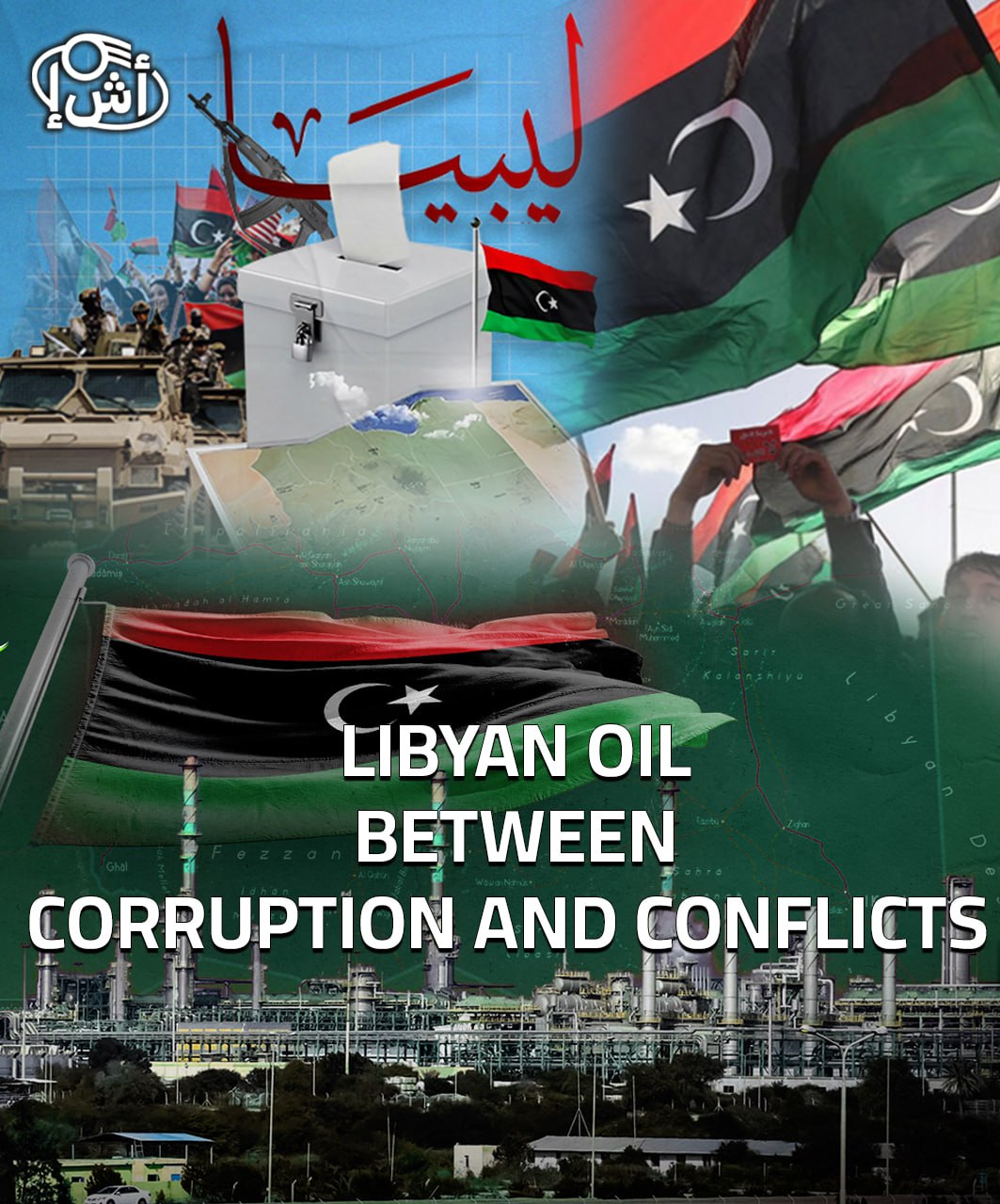The dismissal of Libya’s oil and gas minister in the outgoing Government of National Unity, Mohamed Aoun, painted a bleak picture of the country’s political differences.
- The exemption has sparked controversy inside Libya and in the international arena, as it comes in light of escalating tensions and competition within Libyan political institutions, as Western reports indicated that the replacement of Aoun with the successor of Rajab Abdul Sadiq bears the fingerprints of Ibrahim Ali Dabaiba, the nephew of the prime minister, as the exemption was made to remove obstacles to new agreements with foreign oil companies.

The exemption scenario emerged against the backdrop of investigations by a government body into legal fraud and waste of public funds, and shortly after the suspension, a replacement was appointed from within the board of directors of the National Oil Corporation, a body that often disagreed with the ministry over oil policies.
Conflict Liquidation
The dismissal came as part of Dabaiba’s redrawing of accounts, which faces complex challenges, in which oil and monetary policy play a key role, as Aoun’s replacement provided more room for maneuver and his departure will benefit Farhat Ben Qadara, the head of the National Oil Corporation, who has been at constant odds with the sacked minister.
The appointments that took place in 2022 within the Libyan oil sector were within a critical balance for the conflicting parties, as Ibrahim Dabaiba was appointed to the Ministry of Oil, Farhat bin Qadara was installed in the National Corporation and the successor of Rajab Abdul Sadiq, the new oil minister, also won a seat on the Board of Directors of the Corporation.
Although the dismissal process seemed to be a dispute within the balances that govern Libya in general, but at the same time it raises contradictions in depth about the strategy of managing the oil sector, which is a pivotal sector in Libyan public policy, as the dismissed minister opposed many oil deals, in particular the signing of a memorandum with Turkey in October 2022 to explore for hydrocarbons in Libyan waters, as the Dbeibeh government believes that facilitating oil deals will help it deal with turmoil in this sector, especially Repeated closures of oil ports or transport lines as a result of protests by workers in this sector.
Economic turmoil
The problems of the oil sector were reflected in Libyan financial policies, which led to the sudden and record rise in the exchange rate of the US dollar against the Libyan dinar, as Aguila Saleh, Speaker of the Libyan National Parliament, based in eastern Libya, decided to devalue the dinar by imposing a tax of 27% on foreign currency purchases, and the new tax effectively weakened the exchange rate from 4.80 Libyan dinars to the dollar to between 5.95 and 6.15 dinars to the dollar, and the Central Bank of Libya did not provide hard currency. Fully during the year 2024 in raising the price of the dollar on the black market, after it was not available from official sources.
The Central Bank’s decision to stop credits complicated the issue of businessmen’s deposits in banks and put Libya in a liquidity problem not seen in years, and these reasons made the rise in the dollar exchange rate multiply in conjunction with doubts in the performance of the government.
Despite the Central Bank providing an alternative solution by opening a system to provide the equivalent of $4,000, this did not resolve the crisis but exacerbated it, as demand for hard currency increased. At the same time, the Central Bank was unable to respond to this pressure, contributing to further strengthening of the black market.
These turmoil in financial policies reveal the hidden conflict between Prime Minister Abdul Hamid Dabaiba and the Governor of the Central Bank Al-Siddiq Al-Kabir, as this conflict has not stopped since it appeared to the public last November, and the escalation of differences carried to Dabaiba’s determination to isolate Al-Kabir after the latter took steps to rationalize the expanded spending of the government, but this position is opposed by most members of the House of Representatives and the State, who refuse to take the step now in light of the international support received by Al-Kabir, which is what Africa Intelligence revealed mediation led by Turkish Foreign Minister Hakan Fidan, during his visit to Libya on February 7 to bring unity Prime Minister Abdul Hamid Dabaiba closer to Central Bank Governor Sadiq al-Kabir.

The rise in the dollar exchange rate remains not the only problem at the level of the financial crisis, as there is a delay in paying salaries due to lack of liquidity, which raised the volume of accusations between the government of Tripoli and the eastern regions of Libya, which made Dabaiba come out of his silence, explaining that the reason for all this is the House of Representatives, which repeatedly refused to adopt a budget for his government, and despite the prosperity that the Dbeibeh government is trying to show, it is going through difficult economic conditions that coincided with the announcement of the members of the Petroleum Facilities Guard At the Zawiya refinery, the refinery and the Mellita and Misrata oil complexes were closed, to demand their rights from previous salaries and settlements and to implement the decision to grant them health insurance similar to what an employee in the National Oil Corporation receives.
Libya’s oil income over the past two years is the highest since 2013, and development was supposed to arise due to high oil prices, but political confusion and competition between the parties within the Dbeibeh government have missed that opportunity, making it difficult to formulate future strategies as long as political differences persist.
Written by Nidal Al-Khedary
An agreement between Algeria and Slovenia to increase the quantities of gas exported
